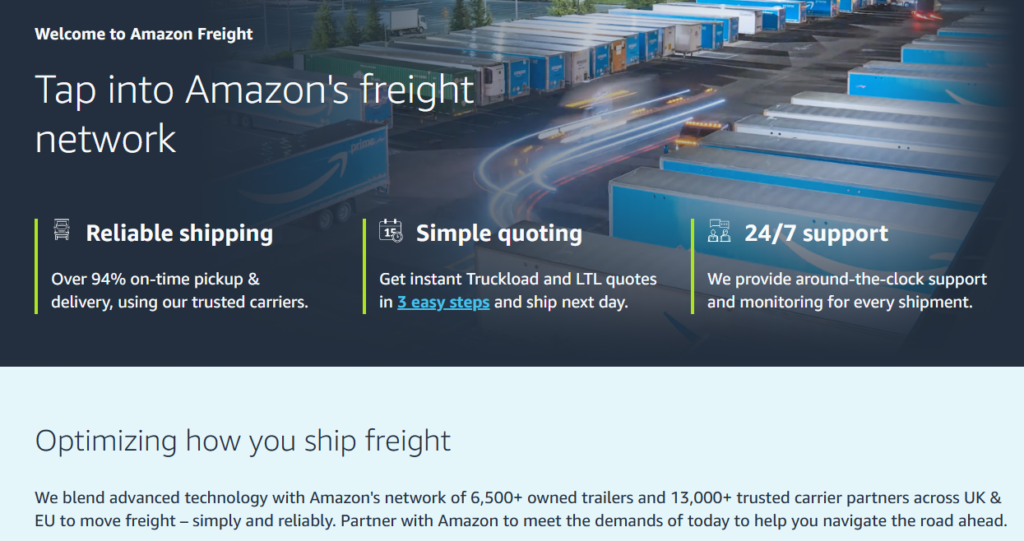In the highly competitive world of transportation companies often rely on third-party trailers to carry their goods from one place to another. This practice, known as trailer interchange, can offer several advantages, including increased flexibility, reduced costs and improved efficiency. However it also comes with a range of potential risks and drawbacks that transport companies need to be aware of. In this article, we will explore some of the shortcomings that can arise when a transport company uses other transport company trailers to carry their goods for payment or reward and discuss some strategies that companies can use to mitigate these risks.

Who is liable for maintenance
Whenever a transport operator applies for an operating licence they declare that by signing the application form they are accepting a series of undertakings. Two of them are relevant to our for this topic, namely that vehicles and trailers are not going to be overloaded and that
“Vehicles and trailers, including hired vehicles and trailers, are kept in a fit and serviceable condition”
Going through the form there is another relevant undertaking which states that in respect of each operating centre specified the number of vehicles and the number of trailers kept there will not exceed the maximum numbers authorised at each operating centre – which will be noted on the licence.
In summary, the transport operator is liable to – according to their licence – operate only the number of vehicles/trailers they have been authorised, they should not be overloaded and they should be kept roadworthy regardless of the actual owner of the equipment. According to the guidance of the Traffic Commissioner the common practice in the industry is to perform a PMI (Preventive Maintenance Inspection) every 6 weeks with a laden roller brake test, at least 4 times a year.
What if we are doing traction only runs?
There are many cases of “traction only” work within the heavy haulage industry. As a matter of fact statistics of 2022 show a major decrease in new and used trailer sales and a sharp increase in movement of blue-chip companies-owned trailers instead. What does that mean? You pick a loaded trailer from your client’s depot in point A, you take it to their depot in point B, you drop it and you are unlikely to ever meet that trailer again.
In the regulator’s point of view any changes to an operating licence should be communicated within 28 days (i.e. specifying a trailer in use). For such traction only runs this is not the case as the cases you will be using the same trailer on more than one occasion are rare.
However, from the undertakings of the operating licence it’s in the operators responsibility to ensure that the trailer they operate is roadworthy.
The hot potato
In a Public Inquiry a while ago, among other shortcomings, the regulator learned that a haulier was operating 3rd party trailers on a regular basis, however they were unable to produce significant proof of maintenance being performed.

More than that, the replies received from some of the owners of the trailers the respective haulier was operating were inadequate. In this case, Amazon stated their PMI interval is set for 6 weeks, while brake test is carried every 50 weeks (that is once a year, most probably during the MOT). Sources from industry reports that nowadays those PMI intervals were extended to 10 weeks, while there is no change in brake tests intervals.
This statement was not for much help to the haulier during the public inquiry as most of the owners of the trailers they were operating failed to provide proof or records of maintenance.
In response to that issue the haulier decided not to use 3rd party trailers from the companies that refuse to provide documentation proving their maintenance record.
How did we get here?
There is a common practice among some of the licenced operators, partly – some would say – due to a void in regulating the daily use of 3rd party trailers. As mentioned before using a different trailer everyday does not necessarily generate the requirement to add them to the operator licence as permanent. Due to this interpretation there are thousands of trailers on the roads that are virtually not mentioned on any licence at all. Depending upon the agreement between the owner of those and their actual operator the common practice is that maintenance is paid for by the owner, with wear and tear paid for by the operator, or even free of any charge for the operator.

Never odd or even
Some legislative gaps along with poor practice and misinterpretation of the current regulatory framework can pose a significant risk for road users as well as significant business risk to licenced operators. IF they get caught.
Even the Traffic Commissioner appreciated, in the decision for the Public Inquiry we mentioned above, that it is concerning when a 3rd party trailer owner fails to prove their maintenance records on the request of the authority and allows such big intervals in fulfilling their duties.
“The lack of response from Amazon is truly concerning, particularly following the information dated 13 September 2021 that its trailers receive a brake test every 50 weeks. For the avoidance of doubt, that is wholly unacceptable. I am unclear how this could possibly be argued to be consistent with its general duties under the Health and Safety at Work etc. Act 1974. “
However,
“It will inevitably lead to scrutiny of any licensed operator engaged in activity under contract with that entity. No commercial activity, whatever its size, can expect a regulator to overlook the potential impact on road safety. It would be well advised to accelerate any plan it has to address the alarmingly poor approach to trailer brake testing, which is evident from the documentation in this case, and which placed this licence at risk.”
As it is expected the smallest and the weakest gets punished. Perhaps the regulator should have a deeper look into those poor practices and fix them by updating the current legislative framework.
What is to be done
The Traffic Commissioner mentioned a guidance provided by IRTE, called “Roadworthiness: Industry Best Practice for 3rd Party Trailer Operators”. In the guidance it is advised that operator should, in the first instance, have systems in place in order to obtain proper paperwork confirming the maintenance records prior yo touching a 3rd party trailer. Ultimately, where this is not possible, they should check and record any markings (i.e. stickers, plates, etc.) that could make reference at least to the dates when maintenance is performed.
TransportExperts developed a policy to help licenced operators achieving this goal. This can be found here.
Comments are closed